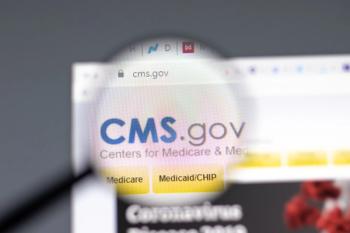
AJMC Review Offers Roadmap for Getting Paid in Molecular Diagnostics
Both Medicare and commercial insurers have raised the bar for molecular diagnostic companies, requiring them to show clinical utility to receive reimbursement for cellular tests designed to guide treatment in cancer, rheumatoid arthritis, and other diseases. An important new article in The American Journal of Managed Care reviews cases from a top Medicare contractor and outlines how to build the evidence to meet today's standards.
PLAINSBORO, N.J. — In today’s cost-conscious managed care environment, molecular diagnostic testing companies can no longer simply show that a test finds what it purports to find. Before payers, especially Medicare, provide reimbursement, they demand a new standard of clinical utility, which asks companies to show how their test affects clinical decision-making.
In other words, do tests results affect which drug a patient receives, or cause the patient to not be treated at all?
What constitutes evidence of clinical utility has been a source of controversy, however. Within Medicare, one contractor, Palmetto GBA, which has jurisdiction over several large Western states including California, developed the MolDx program to create standards of evidence, and began applying them after 2011. But some companies and laboratories have struggled to meet the new requirements, and the industry has seen financial setbacks as a result.
John W. Peabody and several co-authors evaluated 34 applications before Palmetto GBA between January and July 2013, of which 12 were denied reimbursement by MolDx for lack of clinical utility data. From this process, they developed five key lessons for building evidence and gaining reimbursement, which is published this month in The American Journal of Managed Care. While the steps are not endorsed by MolDx, the authors acknowledge Palmetto GBA’s medical director, Elaine Jeter, MD, for her “helpful comments regarding the manuscript.”
The lessons are listed below. For the full article,
- Lesson 1. Understand that outcomes are hard to capture, but clinical behavioral change is almost always proximate to outcomes change. Studies must be designed properly to answer questions about whether the test guides treatment decisions. Even though cost-effectiveness is not a criterion for FDA approval, including it in the mix may affect clinical utility.
- Lesson 2. Start early. Waiting too long to start examining clinical utility can cause companies to lose time and money. Peabody recommends use of simulation tools to set the parameters for broader clinical utility research.
- Lesson 3. Learn from successes and failures. Palmetto GBA’s mantra is good science, patient impact, and practice change.
- Lesson 4. Determine clinical utility with rigorous science. This one will be controversial: Palmetto GBA wants to see prospective studies, not just retrospective studies.
- Lesson 5. Understand that clinical utility studies may need to involve payers and providers from the start. Involving commercial payers in study design, and giving them opportunity to comment, increases the likelihood of payer adoption.
Peabody writes from experience. The president of QURE Healthcare, he developed proprietary simulation methods to perform early scientific evaluations of a diagnostic test designed to guide treatment decisions in rheumatoid arthritis. The test, developed by Crescendo Bioscience, was approved for compensation and reimbursement by Palmetto GBA. Crescendo has since been purchased by Myriad Genetics.
After Peabody’s analysis was completed, tensions between Medicare and the diagnostic testing community escalated. In April 2014, the California Clinical Laboratory Association sued HHS over Medicare’s reimbursement policies, and Palmetto GBA’s decisions in particular. HHS has moved to have the suit dismissed, but for now it continues.
Issues in molecular diagnostics, including reimbursement, will be featured in a panel discussion during “Patient Centered Oncology Care,” the annual multi-stakeholder conference sponsored by The American Journal of Managed Care, which is set for November 13-14, 2014, in Baltimore, Maryland. For more information and registration,
About the Journal
The American Journal of Managed Care, now in its 20th year of publication, is the leading peer-reviewed journal dedicated to issues in managed care. Other titles in the AJMC family of publications are The American Journal of Pharmacy Benefits, which provides pharmacy and formulary decision makers with information to improve the efficiency and health outcomes in managing pharmaceutical care. In December 2013, AJMC introduced The American Journal of Accountable Care, which publishes research and commentary devoted to understanding changes to the healthcare system due to the 2010 Affordable Care Act. AJMC’s news publications, the Evidence-Based series, bring together stakeholder views from payers, providers, policymakers and pharmaceutical leaders in the areas of oncology, diabetes management, and immunology and infectious disease. To order reprints of articles appearing in AJMC publications, please call (609) 716-7777, x 131.
CONTACT: Mary Caffrey (609) 716-7777 x 144
Newsletter
Stay ahead of policy, cost, and value—subscribe to AJMC for expert insights at the intersection of clinical care and health economics.








